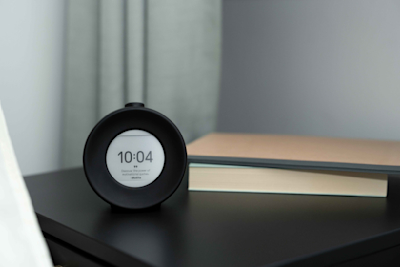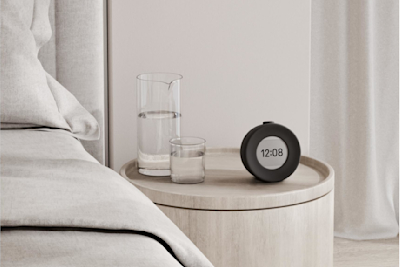
What causes insomnia & how to treat it
Insomnia - Symptoms, causes, and treatment
Fed up with the endless cycle of exhaustion? Occasional sleepless nights might be normal, however when insomnia refuses to take a night off, it can morph into a significant issue.
If you're one of the millions of individuals who suffer from insomnia, you know how frustrating it can be to lay in bed for hours trying to fall asleep. Insomnia can cause a variety of problems, including fatigue, irritability, and difficulty concentrating. While there are many potential stress seems to be one of the most common factors, as it can keep your mind racing at night and make it difficult to fall asleep. Other causes include sleep deprivation, restless nights, bedtime anxiety, and poor sleep hygiene. [1]
Mudita Harmony2
What is insomnia?
Insomnia is a sleep disorder which is characterized by difficulty falling asleep, difficulty staying asleep, or both. It can be caused by a variety of factors, including stress, anxiety, medications, and health conditions. In this article, we will explore the different causes of insomnia and discuss ways to overcome this sleep disorder. [2]
How do I know if I have insomnia?
There are two types of insomnia: primary and secondary. If you have difficulty sleeping but there isn't an underlying health condition causing it, then it's referred to as primary insomnia. However, if your sleepless nights are due to stress from work or personal life problems, anxiety about an upcoming event such as public speaking or taking exams etc., then it would be classified as having secondary insomnia caused by these outside factors.[3]
Some common symptoms include: struggling to fall asleep at night; waking up frequently during the night; feeling tired upon waking in the morning; non-restful sleep; being irritable during the day due to lack of sleep ; concentrating/focusing on tasks becomes more difficult than usual.
What are the most common causes of insomnia?
Bedtime can be a particularly stressful time for people who suffer from insomnia, as they may fret about not being able to fall asleep. There are many potential causes of insomnia, but the most common ones are stress and sleep deprivation. When we're stressed, our bodies go into "fight or flight" mode, which makes it hard to relax and fall asleep. Sleep deprivation can also cause problems with falling asleep because when we're tired, our bodies have a harder time winding down. If you've been having trouble sleeping, it's important to talk to your doctor about all possible causes, so you get the proper diagnosis, in order to seek appropriate treatment which will help you get the restful night's sleep you need.
How exactly does stress affect sleep?
It's no secret that stress can have a negative effect on our health. However, did you know that it can also lead to insomnia and other sleep problems? When we're stressed, our bodies are in a heightened state of alertness and it becomes more difficult to fall asleep or stay asleep. Over time, this can lead to chronic sleep deprivation which can impact our physical and mental health in many different ways. [4]
According to Dr. Annise Wilson, assistant professor of neurology, pulmonary, critical care, and sleep medicine, stress commonly results in insomnia.[5]
In layman’s terms: High levels of stress can keep you awake at night because they prolong the time it takes to fall asleep. Stress can also lead to fragmented sleep by not allowing your body to fall into a deep restful slumber. This disruption triggers your body's stress response system even further, raising the level of stress hormones in your blood—cortisol, especially—which can sap your energy and make you feel even more stressed out. To put it simply, it's a vicious cycle of anxiety, stress, and insomnia.[6]
How to start sleeping better?
If you and your doctor determine that it’s the stress that is keeping you from getting the quality sleep you need, you need to address the stress triggers in your life and take steps to reduce it. One of the easiest ways to reduce stress is by practicing breathing exercises. There are several breathing techniques which can help you reduce your stress levels in as little as a few minutes, providing relief almost immediately.
We discuss additional effective ways to deal with stress in an extensive article on our blog.
There are also a few additional things you can do to start sleeping better and they all center around establishing good sleep hygiene. [7]
Mudita Harmony
All about good sleep hygiene
Healthy sleep hygiene is more than just getting the right amount of sleep. Good sleep hygiene involves daily routines which promote consistent, restful, and uninterrupted sleep. That’s why if you’re suffering from insomnia, it’s important to have a holistic approach to sleep and look at all aspects of our life to determine if we’re doing everything we need to in order to allow our bodies to properly relax and unwind every night.
The following are just some of the things you can do to improve your sleep hygiene:
Establish a regular sleep schedule. Go to bed and wake up at the same time each day, even on weekends. This will help regulate your body’s natural sleep rhythm. A mindful alarm clock, like Mudita Harmony, can help you institute healthy bedtime habits.
Establish an environment that allows for peaceful slumber. Ensure your bedroom is dark, quiet and cool. This includes limiting the use of electronics approximately 60-90 min. before bed and avoiding stressful activities.
Create a relaxing offline bedtime routine. This could involve taking a warm bath, reading a book, or stretching. Doing the same thing each night will signal to your body that it’s time to sleep.
Avoid eating heavy meals within two hours of going to sleep.
Refrain from drinking caffeine and alcohol before bed, since both can interfere with sleep.
Exercise regularly but not immediately before bed.
Good sleep hygiene is vital for health and well-being because it allows your body to get the quality sleep it needs in order to rest and rejuvenate. When we sleep, our body is able to repair damaged cells, grow new tissue, and release hormones that regulate mood and energy levels. Getting enough quality sleep is essential for maintaining a healthy immune system, managing weight, and reducing stress.
Practicing good sleep hygiene habits will help you get the restful night's sleep your body needs.
Bottom line
It is estimated that up to one third of the population suffers from some form of insomnia, with 10% suffering from chronic insomnia. Although there are many potential causes of insomnia, including stress, restless nights, sleep deprivation, bedtime and sleep hygiene, the most common cause of insomnia is anxiety.
Anxiety disorders and insomnia often go hand-in-hand. Excessive worry and fear make it harder to fall asleep and stay asleep through the night, which in turn can worsen anxiety. This creates a negative cycle in which anxiety and sleep deprivation feed off of each other.
When anxiety and lack of sleep meet, they feed a vicious cycle and the problem of sleep deprivation is compounded, resulting in insomnia.
That’s why reducing stress and practicing good sleep hygiene are important in preventing or alleviating insomnia.
If you’d like to read more about improving your sleep hygiene, please check out our Sleep Better page or read some additional articles connected to the subject on our blog:
Also consider joining our Mudita Community on our forum.
Related stories

The Power of Motivational Quotes
Motivational quotes boost focus, resilience, and positivity. Discover their impact and how Mudita Harmony’s Custom Quotes bring meaning to daily life.

Seven Books That Will Deepen Your Mindfulness Practice
Explore 7 science-backed mindfulness books to reduce stress and cultivate inner peace. Expert picks from Jon Kabat-Zinn, Thich Nhat Hanh & more for all levels.

Why an E Ink Alarm Clock Is the Best Mother’s Day Gift
This Mother's Day, gift better sleep with an elegant E Ink alarm clock, like Mudita Harmony, featuring nature sounds for restful nights and gentle mornings.
Jeśli chcesz otrzymywać najlepsze historie z naszego bloga, bądź na bieżąco z naszymi postępami i otrzymuj powiadomienia o premierach naszych produktów i specjalnych zniżkach.